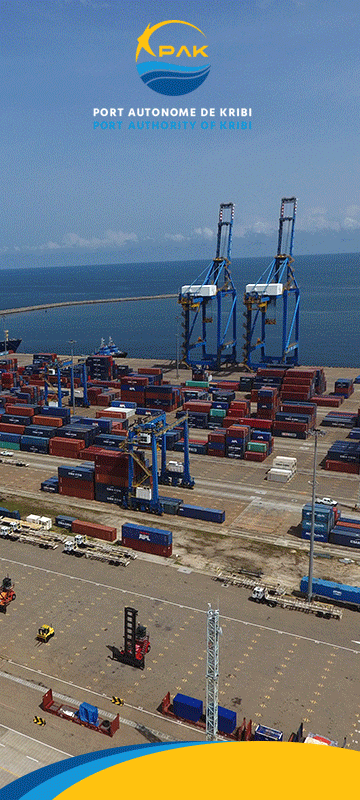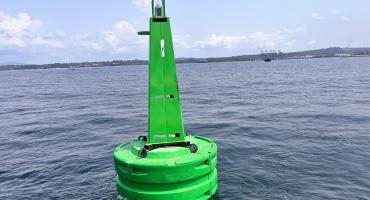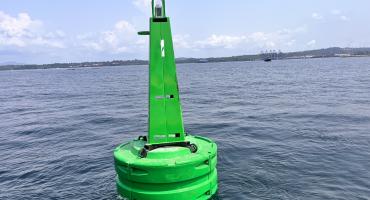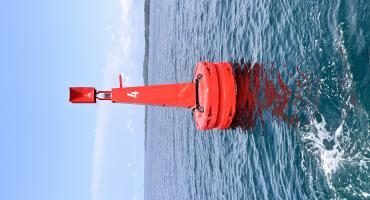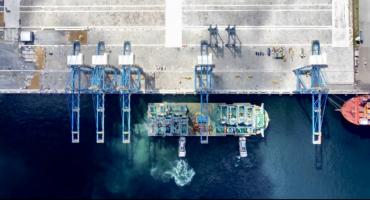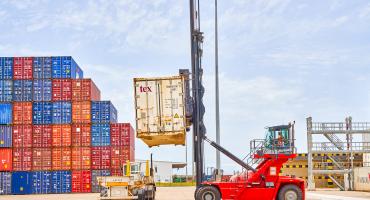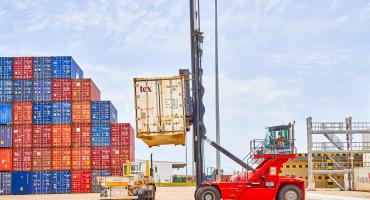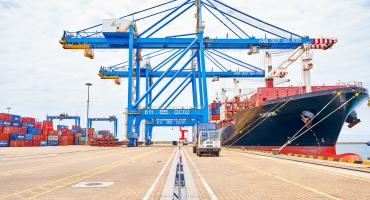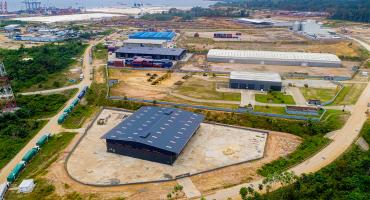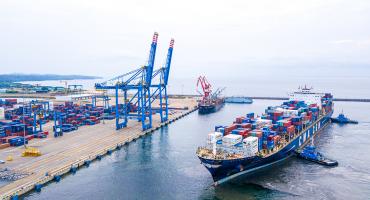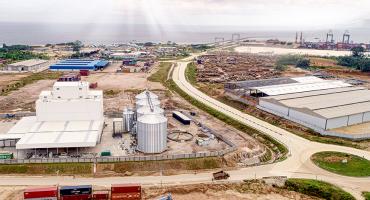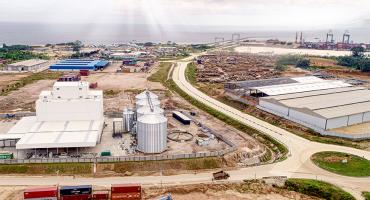Kribi is the headquarter of the Ocean Division, in the South Region of Cameroon. At some 6 km to downtown, the first picture one gets is endless water with a spectre-like horizon. Thus, is the introduction to Cameroon hottest seaside town, a well-known touristic site. Through town as from the famous “Carrefour Tradex”, an asphalt road broken down in a series of urban roads leading to the richness and attractions of importance to inquisitive minds.
That is Kribi, bursting with life, teeming with a bit of rebellion so eager to reveal. A top-class seaside town, second to none, with its beautiful sandy beaches. 7km away from town are the beautiful Lobe Falls, a one-of-a kind beauty. A river that flows into the sea through cataracts, pygmies’ villages buried in the surrounding forest. Kribi is naturally referred to as the Cameroonian Riviera. Most often, tourists after a first trip come back. With such natural endowment, Kribi has gradually developed a wide range of touristic infrastructures that meet all budgets. In terms of catering, these range from the neighbourhood tavern specialised in local or national dishes to high class restaurants meeting international standards, and in terms of accommodation, from small discreet hostels to 3-star hotels. Kribi is a water town. There, you find all sorts of water: rainwater, sea water and river water. The most common legend, that of « Mamy Water », is related to water. Legend has it that the waters of this town are full of sirens.
In terms of demography, with a population of about 40,000, Kribi has a very old story. Actually, in addition to pygmies, the first inhabitants in the region living now in small hamlets in the forest, two ethnic groups, the Batanga and the Mabi are the natives of the town. The Iyassa or Ndoe, the Mvae, the Ewondo, the Bassa, the Boulou, the Ngoumba and the Fang are all from the Ocean Division and live peacefully with other ethnic groups from other regions of Cameroon. In addition to fishing, a traditional activity, cocoa farming has become the main economic activity since the colonial period. On the historical and cultural level, the first German missionaries and traders landed in Kribi in 1889 and traded salt, loincloth, ivory, rubber… The original name Kikiribi is said to mean little man and is said to be the name given by colonists to a small-height native with arched legs. The native then adopted the name and passed it on to his family and the people of Lohove. Over time, the name became Kribi.
The Batanga, under their chief, King Madola, fiercely resisted the Germans. This may explain their exile in 1914 in the South-West region. It was only 1916 that the Batanga were brought back home after being massacred, caught between Allied bombings and German counter-attacks. This return has been celebrated for more than 91 years in Kribi. As a matter fact, on 14 February and 9 May, the Batanga people celebrate the return from exile of their grand-parents at the end of WW1. It is an opportunity for the people to showcase their art and culture. In general, the inhabitants of Kribi and its surroundings express their joy, and sadness through traditional rites and dances, the most famous of which are the Ivanga, Biden bi Kwassio, the Pygmy dance… As concerns weather, Kribi has an equatorial climate with four seasons: a big dry season, big rainy season, a small dry season and a small rainy season.

